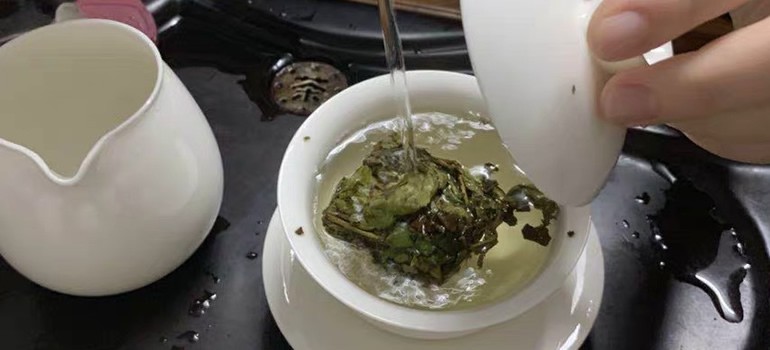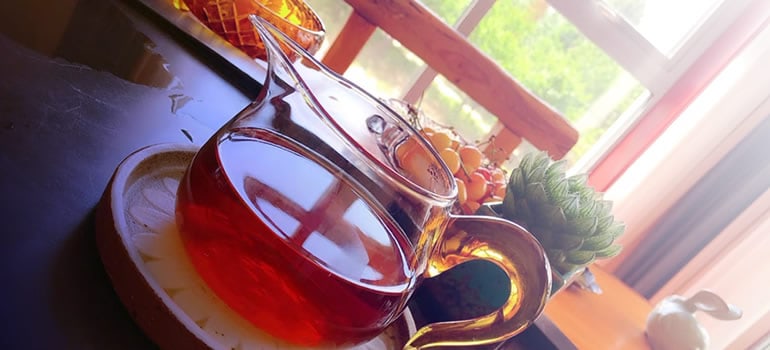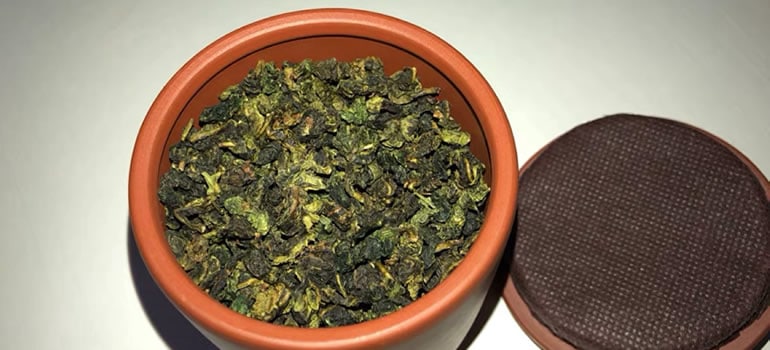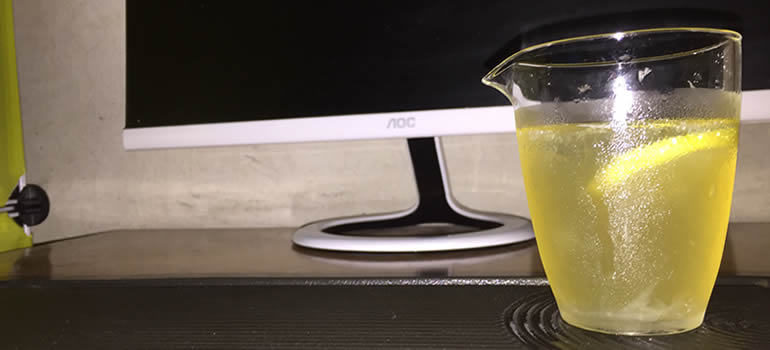Do you drink your tea hot or cold?
Tea is supposed to be consumed hot, except for iced tea, of course, but have you ever wondered if one is better than the other? I certainly have, and if you are here, so are you.
A simple aspect like the temperature of your tea may not seem like something one should fret about, but you may be surprised how important the temperature of your tea in reality is.
Cold tea has similar, and in certain cases, even higher amounts of antioxidants, catechins, and flavonoids as hot tea, but it takes longer to prepare. Compared to hot tea, cold tea is also easier on the cardiovascular system. Iced tea, on the other hand, is inferior to both cold and hot tea.
Drinking your tea hot or cold can make all the difference. As you are about to find in this article, it can affect not just the qualities of your favorite cuppa but also how your body and even mind reacts to it.
The Temperature Affects the Antioxidant Content of Tea
Tea is consumed not just for its refreshing and hydrating capabilities but also because it has been proven to be healthy. The health benefits of tea are in direct proportion to its antioxidant content.
The reason why tea undergoes hot infusion is that hot water results in a faster extraction speed and power. In other words, hot water pulls out the healthy compounds found in tea faster, but it can degrade and destroy the healthy compounds a lot faster, too. This is why when steeping your tea with hot water, the recommended times are between 1 to 10 minutes depending on the type of tea you are using.
But, then again, we can also prepare tea with cold water.
The cold water tea infusion is gentler and does not degrade the healthy compounds in tea as much as hot infusion does. That means cold water tea infusion takes more time to happen but results in a tea that contains more healthy compounds.
One study aimed to test how tea preparation would affect the quality and quantity of healthy compounds in tea.
The researchers used black tea, green tea, and oolong tea and compared three different brewing methods in their study.
- Standard hot water infusion.
- Cold water infusion.
- Hybrid tea infusion.
The standard hot water infusion was at 194°F (90°C) for black tea, 167°F (75°C) for green tea, and 185°F (85°C) for Oolong tea. The amount of tea used was 12 grams, and it was placed in 33 oz (1L) of water. The teas were left to steep between 3 to 4 minutes.
The cold water infusion was at 39.2°F (4°C) and lasted for 12 hours. Between 7 and 8 grams of tea was placed in 33 oz (1L) of water.
The hybrid method added 30 grams of tea to 20 oz (600 mL) hot water at 176°F (80°C) and lasted between 3 to 5 minutes, after which 0.9 pounds (400 g) of ice was added to the tea.
Then researchers examined the catechins, gallic acid, xanthines, total phenolics, and antioxidant content.
The researchers found that cold infusion leads to a higher concentration of antioxidants compared to the classic hot infusion. The hybrid method, however, was also able to produce similar effects to the cold infusion. The initial subjugation to hot water sped up the extraction process while the rapid cooling off was able to prevent the antioxidants from degrading.
Then the researches went on to see if people would prefer one tea over the other.
When they served the different teas to 24 non-expert participants, they discovered that the participants did not enjoy the tea, which was prepared using the hybrid method. The reason for that was believed to be the altered flavor due to the stronger astringency and aroma.
Another study examined how different brewing temperatures (167°F/75°C, 185°F/85°C, and 203°F/95°C) and different brewing times (1, 2, 3, 5, 10, 20, 30, and 45 minutes) affected the catechins in Turkish green tea.
The highest concentration of catechins in the Turkish green tea was observed at a brewing time of 3 to 5 minutes at 185°F to 203°F (85°C to 95°C).
Another study found an interesting correlation between tea leaf size and antioxidant concentration in tea.
In this study, researches compared whole leaves vs. milled leaves. They tried subjecting the two different types of tea to different brewing temperatures and different brewing times. For this experiment, researchers used white and green tea.
Milled tea across the whole board ended up being more astringent and pungy compared to whole leaf tea, and to no surprise ended up having the best antioxidant activity.
But the best extraction of the healthy compounds in tea was achieved with cold water for 120 minutes, while with hot water, the best extraction was achieved at 90°C for 7 minutes.
Whole leaves performed best with the cold water infusion process.
The Temperature Affects the Taste of the Tea
Not all teas taste the same, and the temperate can affect the taste. Of course, the brewing temperature is very important and has turned almost into a science in itself, but there is even more to it than meets the eye.
Not all food—teas included—will taste the same depending on the temperature at which they are consumed. (This applies to things like wine, beer, and even tomatoes.)
The complex aroma and flavor qualities produced by the volatile compounds in tea can be affected or deactivated by the temperature of the beverage. Heating your tea will bring out certain flavors, while cooling it may bring out other flavors.
There are set rules and guides on how each tea should be prepared that include detailed instructions on suggested brewing temperature, steeping time, the type of teapot, and so much more.
Of course, this does not mean you cannot experiment; after all, you are the one who will judge the taste.
Hot Tea May Have a Higher Amount of Caffeine
If we take a look at the data from Mayo Clinic, we will see that a standard cup of tea can have between 28 and 47 mg of caffeine in it. However, certain types of teas can contain even more caffeine. Yerba mate can have up to 85 mg of caffeine per standard 8 oz cup of tea.
And caffeine should not be underestimated.
It can have a beneficial effect on energy levels, alertness, focus, improved physical performance, and it even may lower the incidence of depression. (1 2 3 4)
But consuming too much is associated with certain adverse health effects like anxiety, jitteriness, difficulty sleeping, high blood pressure, heart palpitations, and more. (5 6 7 8 9)
The effect to which caffeine is extracted from the tea leaves is directly proportional to the temperature of the water. Higher temperatures lead to a more caffeine-rich cup of tea.
One study compared how hot water, cold water, and hot water and ice brewing methods affected the caffeine extraction from black, green, and oolong tea. Black and green tea released more caffeine with hot water and hot water plus ice. (With the hybrid, warm water plus ice, method leading to slightly more caffeine.)
Interestingly, oolong tea released significantly more caffeine through cold water infusion.
Usually, in a regular cup of tea, you can expect to have more caffeine with all three types of tea when using the hybrid (hot and ice) method. There are two reasons why that may happen: (1) this method uses more tea per cup of water and (2) the hot water is better at extracting the compounds found in tea leaves.
Since caffeine is an important compound that has a very prominent effect on people, it may come in handy for certain groups of people who may need to lower or limit their caffeine intake.
Cold tea, or even iced tea, could be a great low-caffeine alternative compared to the standard hot tea.
Cold Tea May Be Better for Weight Loss
The rule of thumb is to always drink your tea hot as it promotes weight loss.
But did you know that you may be able to achieve the same if not better results with cold tea?
Well, let’s take a look.
One study decided to compare the weight loss effect of hot vs. cold tea. For this experiment, unsweetened Yerba Mate tea was used, and 23 healthy young adults volunteered. They drank 16.9 oz (500 mL). During the first session, they consumed cold tea, which was served at 37.4°F (3°C). During the second session, they consumed cold tea, which was measured at 131°F (55°C).
Ninety minutes after each administration, several different markers were measured.
- Heart rate.
- Cardiac output.
- Blood pressure.
- Energy expenditure.
- Fat oxidation.
The results were impressive. The researchers found that the consumption of cold (caffeinated) tea produced superior fat oxidation and energy expenditure.
Another study conducted on a much larger scale collected and examined the data from 6,472 adults over a three-year period was very conclusive in its findings.
This study compared hot tea vs. cold tea consumption and examined their effect on obesity.
Hot tea consumption was associated with lower BMI in both men and women compared to people that did not consume tea. Hot tea also had a positive effect on several biomarkers related to heart disease risk and inflammation. (Hot tea was also associated with lowered triglyceride levels in women.)
Cold tea consumption, on the other hand, showed a positive correlation between its consumption and BMI. People that consumed cold tea regularly had higher BMI and had an overall worse effect on heart disease and inflammation biomarkers.
Cold (Caffeinated) Tea May Be Better for Cardiovascular Health
According to one study which compared the effects of hot vs. cold Yerba Mate tea, consuming cold tea may be more beneficial to people suffering from hypertension or other cardiovascular risks.
Тhe cold tea also resulted in decreased double product or, in other words, reduced cardiac load and heart rate.
With that being said, the researchers noted that this data is fairly new and that further research needs to be done before understanding the full implications of cold tea on the cardiovascular system.
Hot Tea Gone Cold May Not Be Healthy
Not all cold tea should be placed in the same category. There are a few things that we need to establish first.
- There is cold tea that has been prepared through cold brew.
- There is iced tea, and
- There is hot tea that has simply gone cold.
Tea that was once warm and then gone cold implies that it has been forgotten for some time. In some instances, people may even consume their tea after 2, 5, even 24 hours. (I am certainly guilty of doing something like that myself.)
This is why, in this context, cold tea will be synonymous with old tea. And old tea may not be good for you.
Here’s why.
The question we should be asking here is, “How bad is old tea, and should you drink it?”
As a general rule, you should avoid drinking old tea that has gone cold, especially if it has been left out in the open for several hours. The older the tea, the more of its nutrients and flavor qualities it has lost.
The tea will start to darken and become more astringent. Eventually, various bacteria and microorganisms will begin to grow and multiply in it. (Even mold can start building up in it.)
You can store your tea in an airtight container, ideally one made from a material that will also prevent light from entering inside as well. This will make sure your tea stays good for as long as possible. But even in this case, the tea will go bad eventually.
According to the general guidelines set by the Center for Disease Control and Prevention (CDC), tea should not be kept in the fridge for more than 8 hours. This may seem like a little too conservative of a time frame, but it is the maximum time, according to the CDC, where there are no risks for the majority of the people.
Whether or not you have cold brewed your tea or prepared it with hot water, it does not make a difference as old tea is old regardless of how it was prepared.
So be careful. This is especially so if you are drinking old tea that has sugar, honey, milk, or fruits added to it. These extra ingredients will speed up the process of spoilage.
A lot of people may even try reheating their old tea, but that will not remove any bacteria or mold that may have already started growing in it.
Cold Tea May Be Better for Hydration
An old study from 1989 conducted by the United States Army compared the drinking preferences of people when offered two types of water (1) warm water 104°F (40°C) and (2) cool water 59°F (15°C).
People ended up drinking more cold water than warm water, which means that warm water may eventually cause dehydration.
Another more recent study came to a similar conclusion.
Several people were subjected to strenuous exercises in order to get dehydrated. Then they were given water with different temperatures.
The results showed that the highest voluntary water consumption peaked with water that was at 60.8°F (16°C), which also led to the least amount of sweating.
Hot Tea May Cause Cancer
One large-scale study published in the International Journal of Cancer monitored the habits of 456,111 adults. The study lasted slightly more than nine years.
Hot tea consumption may lead to the development of esophageal cancer in people that also drink alcohol or smoke.
Another study that lasted about a decade followed 50,045 participants. Again researchers found a positive association between tea temperature and esophageal cancer.
People that consumed 23 oz (700 mL) of hot tea per day at 140°F (60°C) or higher had a 90% higher risk of developing esophageal cancer compared to people that drank less than 23 oz (700mL) of tea per day at temperatures lower than 140°F (60°C).
In 2016, 23 international scientists met at the International Agency for Research on Cancer. After reviewing the current information and data, at the time, they concluded that the consumption of tea (including other beverages) that are hotter than 149°F (65°C) is “probably carcinogenic to humans.”
So, naturally, you may be wondering, “But wait, how hot is my cup of tea, then?”
Although there are recommended temperature ranges for each type of tea in many cases, people just bring some water to a rolling boil and steep their tea in it. Water starts to boil at 212°F (100°C) at sea level. If you are above sea level, these numbers will be slightly lower.
If we decide to go with the most commonly accepted and recommended temperature ranges for steeping tea we will find that both white and green tea are steeped at 165°F to 185°F (74°C – 85°C) while black and herbal teas are steeped at 200°F to 212°F (93°C to 100°C).
As you can see now in both cases, the temperature of your tea is significantly higher than 149°F (65°C). Of course, nobody drinks their tea while steaming hot as they will burn their mouth, but many will still drink it while it is at or around that temperature.
With that being said, experts have gathered numerous data to determine the most optimal serving temperatures for hot beverages, and the number they have come up with is 136 °F (57.8 °C).
Hot Tea May Lower the Risk of Glaucoma
One study published in the British Journal of Ophthalmology found an interesting correlation between hot tea consumption and eye health.
Individuals that consumed at least one cup of hot tea on a daily basis had a 74% reduced risk of developing glaucoma compared to non-drinkers. What was more interesting is that this association was found in people that consumed hot tea only.
No such association was found in people consuming iced tea, decaf tea, coffee, decaf coffee, or soft drinks.
Researches are not yet sure why exactly hot tea was associated with this effect and whether it is something that was related to the lifestyle of people who enjoy hot tea in general or the tea itself.
Hot Tea May Be Better for Treating Flu or Cold Symptoms
In one old study that was carried out in 1978, researchers found that cold water made nasal mucus harder to pass through the respiratory tract as it became harder and thicker.
On the other hand, hot liquids made nasal mucus easier to pass and allowed participants to breathe more easily. What is more, by dealing with the mucus build-up, this can also soothe and alleviate some of the symptoms of a sore throat.
Another aspect of hot tea worth exploring is the benefit of steam inhalation. Steam inhalation is a commonly used home remedy for opening the nasal passages in people that are suffering from cold or sinus infections.
Although frequently used steam inhalation has also been tested in clinical trials and the results have been mixed. Some people did see improvement and experienced relief in their symptoms, while others didn’t. One study found that steam inhalation was effective in treating the headaches associated with sinus problems. (10 11)
Steam inhalation may be dangerous in some instances as it can cause burns. (12)
Cold Tea May Cause Migraines
You may probably have experienced migraines and headaches from the cold winds in the winter.
But did you know that cold liquids may also be able to lead to migraines and headaches?
One study examined the effect of drinking ice-cold water on 669 women. About 7.60% experienced headaches after consuming as little as 5 oz (150 mL) of the ice-cold water.
The women that have experienced a migraine in the last year ended up being twice as likely to experience another one from the cold water than women that have never experienced a migraine.
In other words, if you are prone to migraines and headaches, be very mindful about drinking ice-cold or refrigerated tea.
Drinking Cold Tea After Coming From the Sun May Be Harmful
During a hot summer day, nothing else feels as good as gulping down a lot of cold, in certain cases even ice-cold water. Of course, this can be any other beverage; it can be just as well a cup of tea, a soft drink, a fruit juice, or a cup of milk.
But should you do it?
Drinking cold tea or water after coming from the sun can be dangerous due to the big temperature difference between your body and the ingested liquid. Ice-cold tea can easily stress your stomach to the point where it can cause stomach aches and cramps.
There are also anecdotal cases of people passing out after getting inside an air-conditioned room and drinking cold water in order to chill after being exposed to the heat outside.
Cold beverages are believed to restrict and limit digestion and contract the blood vessels.
As we have explored in this article, ice-cold tea can lead to mucus build up in the respiratory tract, which may lead to inflammatory infections and cause sore throat.
The same thing applies to drinking ice-cold or refrigerated tea after doing vigorous exercises.
Hot Tea Can Make People More Friendly
This is where things can get very interesting.
One study found that the mere act of holding a warm cup of tea can make people warmer toward each other and perceive other people as friendlier.
Researchers extended their experiment and did a second study where they asked people to hold either a warm or a cold therapeutic pad. At the end of the study, people were asked to choose a reward for their participation, which was a small gift that was going to be either for themselves or for a friend.
- 54% of the people who were holding the warm pad chose a gift for a friend.
- What do you think the people holding the cold pads did? You will be surprised—75% of the people holding the cold pads chose a gift for themselves.
Actually, drinking hot tea can help calming your nervous system. In fact, hot tea with milk has been shown to improve mood and even reduce the stress and anxiety levels, even in cases with tea that contained caffeine. (13)
Hot Tea Can Help Start-Up Your Metabolism
Tea in the morning is a great way to kick start your day. It will provide your digestive tract with the necessary lubrication it needs to function properly.
Hot tea can also aid your stomach in metabolizing and breaking down certain types of foods that otherwise may take longer to digest. (For example, the fat in certain foods.)
A common belief by the experts is that cold beverages like iced tea can solidify fats found in the food you may have just consumed. This may give your body and stomach a harder time breaking down that fat.
Hot liquids like water and tea can also help people suffering from achalasia. A condition that makes it difficult for people to move food down the esophagus. (14)
This also results in a lowered risk of constipation as it also promotes regular bowel movement.
With that being said, be careful not to drink your tea on an empty stomach. There are no rules on how early you can drink your tea, but drinking it on an empty stomach can cause acidity and, in certain cases, stomach pain.
Resources:
- https://crunch.dotfit.com/content-35820.html
- https://www.smithsonianmag.com/arts-culture/warm-beer-and-cold-tomatoes-how-temperature-affects-flavor-97902505/
- https://www.healthline.com/nutrition/caffeine-side-effects
- https://www.verywellfit.com/what-are-the-side-effects-of-too-much-caffeine-2506047
- https://www.healthline.com/nutrition/caffeine-in-tea-vs-coffee#tea-vs-coffee
- https://www.healthline.com/nutrition/top-13-evidence-based-health-benefits-of-coffee#section7
- https://www.healthline.com/health/is-drinking-cold-water-bad-for-you
- https://www.myrecipes.com/extracrispy/the-tea-temperature-trick-that-will-give-you-a-perfect-cup-every-time
- https://www.ecooe.com/ecooe-life/can-you-drink-tea-that-has-been-left-out-overnight/
- https://coffeeandteacorner.com/does-brewed-tea-go-bad/
- https://food.ndtv.com/food-drinks/why-you-shouldnt-drink-chilled-water-5-reasons-to-quit-the-habit-1686599
- https://www.godupdates.com/dangerous-drink-cold-water-on-a-hot-day/
- https://www.quora.com/Is-it-harmful-to-drink-chilled-water-after-staying-in-the-sun-for-a-long-time
- https://www.active.com/nutrition/articles/the-diet-detective-the-everything-guide-to-tea
- https://www.healthline.com/health/steam-inhalation
- https://www.medicalnewstoday.com/articles/319673
- www.medicalnewstoday.com/articles/325038
- www.healthline.com/health/benefits-of-drinking-hot-water
- https://news.usc.edu/102142/piping-hot-drinks-may-lead-to-cancer-of-the-esophagus/
- http://nwasianweekly.com/2018/04/blog-hot-water-vs-coffee-and-tea-why-hot-and-not-cold-water/
- https://www.bustle.com/p/the-health-effects-of-iced-room-temperature-hot-tea-according-to-science-16966403
- https://sirjasonwinters.com/difference-hot-tea-iced-tea/




